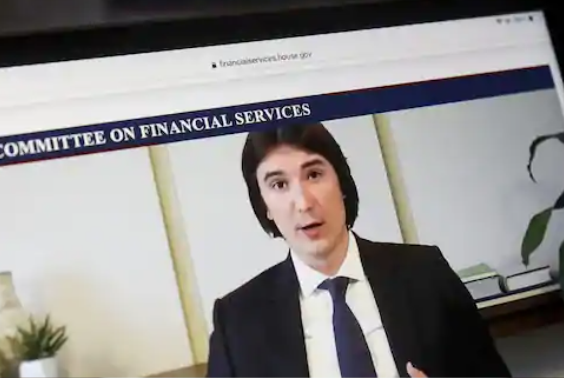
February 20, 2021
by Peter Seed

Gamestop and the Big Reveal of Inefficient Markets
On February 18, 2021, the House Financial Services Committee held a hearing related to the activities of January 28th where shares of about a dozen stocks touted by a Reddit community (WallStreetBets) made some black-swan price moves. It was a classic, social-media-fueled “pump and dump” scheme. Included in those stocks were Gamestop (GME) and AMC Theaters (AMC). Gamestop got the lion’s share of publicity because the price of its shares went from $20 to almost $480 in two days. This was followed by an equally jarring retrenchment to $45, two weeks later.
As someone who has participated in four online brokerage start-ups over 20 years, this was must-see TV. What was interesting to me was the search for a clear narrative, or more accurately, a reason for the hearing in the first place.
Here were some of the issues in play:
Payment for Order Flow. Payment for order flow, pioneered by Bernie Madoff (of all people) is an incentive payment offered by market makers (and some exchanges) in order to get the right of first refusal orders that are profitable to fulfill. The CEO of Robinhood, Vladimir Tenev, revealed that payment for order flow is an important part of his company’s business model – representing most of its revenue. These incentives, he maintained, are the reason they can offer commission-free trades. He went on to point out that when Robinhood first started as a business, no one believed that payment for order flow could ever support commission-free trading – no way, no how. But it did. Because of deep-pocket investors and a youth-orientated, mobile-first product offering Robinhood acquired millions of customers over a five-year period. Furthermore, the success of Robinhood was transitional to the industry.
Let the People Trade. Most of the witnesses were of the mindset that self-directed traders are a benevolent force in the financial ecosystem. Hard to argue with that. But some Representatives focused on calling out riskier trading strategies (like options) as the gateway drug to certain ruin for young, self-directed investors. Trouble is there are certain options trading strategies that are less risky than buying stocks alone — covered calls and cash-protected puts, for instance. In my view, Representatives need to get more familiar with the subject matter before making blanket statements about trading risk.
Robinhood is the Bogeyman. Because Robinhood is the preferred platform for most of the WallStreetBets crowd, Representatives believed it was culpable for the social-network dump-and-dump scheme. In addition, Robinhood was on the hot seat for gamifying its site to the point that it was too easy for young, inexperienced investors to make high-risk trades. A few Representatives cried foul because Robinhood restricted some trades while it scrambled to raise $3.5 billion to cover a clearing deposit requirement. For those not in the know, the U.S. stock market has a clearing process that requires brokerage firms to post a deposit to cover counterparty risk (the risk that a trade will not clear) during a two-business-day clearing process. So why do brokers have to cover that two-day risk? Good question. Probably because no one else can be reliably tapped to pay for it.
How Dare You Stop the Buy Orders. Most of the Representatives felt that Robinhood failed miserably when it halted trading on a dozen symbols right when the social-media-fueled, pump-and-dump scheme was at its peak. Man… was that off the mark. If your Clearing House demands you must pony up $3 billion dollars in a matter of hours, and the alternative is a complete liquidation of all customer portfolios, what would you do? Although Mr. Tenev never brought it up, many traders were spared a record loss that would have been all but certain had they bought GME at $400. It reminded me of when Twitter banded Donald Trump. Sometimes big tech can be the only adult in the room.
We Need Better Infrastructure. A very compelling case was made for putting resources into improving the trade-clearing infrastructure. If trades were cleared in near real-time then no more surprise deposit increases. The present system is archaic – especially since technology is readily available to provide much more efficient clearing. Ultimately, the problem comes down to who should pay for a better clearing system.
Overall, I found the hearing interesting. Yes, it was all over the map, but it was fascinating to get the full gambit of thoughts and opinions.
I predict the net of this whole inquiry process will be the revelation that the stock market’s exchange system is a jumbled mess of old technology.
I hope that in the future, the panel will address how blockchain technology can improve the process of clearing trades and allow trades to be cleared in near real time. That will save everybody money.

